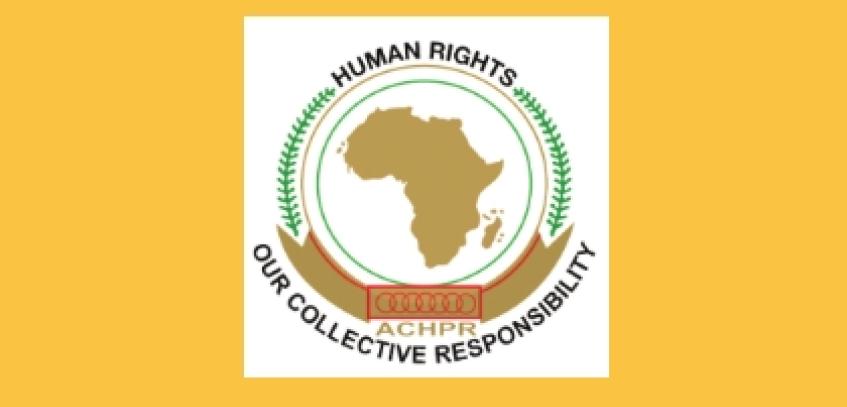Introduction
The Declaration of Principles of Freedom of Expression and Access to Information in Africa (the Declaration) was adopted by the African Commission on Human and Peoples’ Rights (the African Commission) at its 65th Ordinary Session which was held from 21 October to 10 November 2019 in Banjul, The Gambia. The Declaration was prepared pursuant to Article 45 1 of the African Charter on Human and Peoples’ Rights (the African Charter) which requires the African Commission to promote human and peoples’ rights, among others, by formulating and laying down principles and rules to solve legal problems relating to human and peoples’ right and fundamental freedoms upon which African States may base their legislation. The Declaration establishes or affirms the principles for anchoring the rights to freedom of expression and access to information in conformance with Article 9 of the African Charter which guarantees individuals the right to receive information as well as the right to express and disseminate information. The Declaration therefore forms part of the soft-law corpus of Article 9 norms developed by the African Commission, including the Model Law on Access to Information for Africa as well as the Guidelines on Access to Information and Elections in Africa, adopted by the Commission, respectively, in 2013 and 2017.
This Declaration replaces the Declaration of Principles on Freedom of Expression in Africa which the African Commission had adopted in 2002. The 2002 Declaration elaborated on the scope and content of Article 9 of the African Charter. Yet, over the last two decades, major pertinent issues emerged which were addressed insufficiently. This was notably the case in relation to access to information and the interface between Article 9 rights and the internet.
Consequently, initially in 2012 and then again in 2016, the African Commission decided to modify the 2002 Declaration to include access to information while also taking note of developments in the internet age. Hence, this Declaration consolidate developments on freedom of expression and access to information guided by hard-law and soft-law standards drawn from African and international human rights instruments and standards, including the jurisprudence of African judicial bodies. Preparation of this Declaration was led by the Special Rapporteur on Freedom of expression and Access to Information in Africa, who worked closely with stakeholders from State and non-State actors to generate the concept for and to prepare the Declaration. Drafting was spearheaded by a Technical Drafting Team constituted by a team of 15 individuals drawn to cover relevant Article 9 themes as well as various legal traditions on the continent. Technical meetings were held in Nouakchott, Mauritania, on 22 April 2018; Mombasa, Kenya, from 11 to 12 October 2018, and again from 28 to 29 March 2019; and Pretoria, South Africa, from 30 September to 01 October 2019.
Consultations to validate the Declaration were launched at a panel discussion on the Declaration held on 29 April 2019 at the 64th Ordinary Session of the African Commission, in Sharm-el-Sheikh, Egypt. During May and June 2019, State and non-State actors were invited through a public call to provide feedback; and a similar specific call was sent to each State Party to the African Charter. Validation workshops were also held covering State and non-State representatives in Maputo, Mozambique, from 11 to 12 July 2019; Windhoek, Namibia, from 19 to 20 September 2019; and Banjul, The Gambia, from 18 to 19 October 2019. Part I of this Declaration establishes the general principles which apply to the whole Declaration. Part II sets out principles on freedom of expression, while Part III sets out principles on access to information. Part IV addresses freedom of expression and access to information on the internet. Part V establishes principles on the Declaration’s implementation.
The Special Rapporteur wishes to thank all State and non-State stakeholders who participated in the reparation of this Declaration by making contributions to the approach and content of the Declaration. He also thanks all those who provided technical or financial support to the process, including the Technical Drafting Team.
The Special Rapporteur trusts that this Declaration will anchor the promotion, protection and interpretation of Article 9 of the African Charter at the continental, regional and municipal levels and within the executive, legislative and judicial branches as well as amongst the non-State sector, including the media, civil society and indeed the public generally.
Lawrence Murugu Mute
Special Rapporteur on Freedom of Expression and
Access to Information in Africa
November 2019








